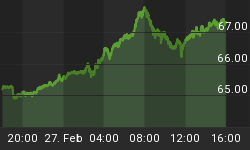What might we expect in the way of the real estate trend for the year ahead? This is the financial question that seems to be foremost in everyone's mind today and for obvious reasons -- U.S. home prices are at record highs and represents the number one investment for most Americans. Now that the mainstream press is talking about a "housing bubble" it seems to have stoked the fears of many homeowners and prospective buyers.
Is this fear of a real estate collapse in 2005 warranted or is it a case of a "wall of worry" that the market will easily climb over in the year ahead? While I don't envision an acceleration of the uptrend like we saw in 2003-2004, I believe we'll see a continuation of the dominant long-term uptrend for commercial and residential housing in 2005 with prices gradually inching higher or at least maintaining current levels across most major regions. As for a major downturn in residential prices, it's not likely to happen as there are too many willing and eager buyers waiting in the wings to buy whatever "dips" come their way. Also, the high levels of fear and concern in the real estate market will most likely act as a contrarian support underneath the market in 2005.
I see the benchmark Morgan Stanley REIT index (RMS) putting in a top in 2005 that could last for a couple of years. I think there's a better-than-average chance that RMS will make a higher high than the one it made in 2004 before it tops with my best "guestimate" being the 800 level or slightly above. This represents the top of a 2-year uptrend channel in the weekly chart. Of course, breaking above the 800 level would qualify as a "channel buster" and would imply exhaustion of the dominant interim trend and more than likely would put the top in for real estate equities for a while.

Does this mean that the real estate equities bull market will collapse in 2005? I highly doubt this will happen. There is simply too much at stake for the powers-that-be to allow property prices (not to mention REITs) to come crashing down now and even if actual real estate values peak in 2005 I can envision them more or less staying at or very near the peak for a few years before finally turning down. In other words, I don't think this decade will witness a major real estate crash. That will likely have to wait until early in the next decade as the K-wave economic cycle along with the 120-year cycle are due to bottom between 2010-2014.
Longer-term, there is not question that loading up on real estate has great risks. A longer-term real estate bubble is indeed forming but we are not yet at the "popping" stage yet. According to the latest statistics, combined consumer and mortgage debt increased from 65 percent of annual after tax income in the early 1980s to 111 percent in 2004!
Donald Rowe in the January 2005 edition of "The Wall Street Digest" writes, "The 2005-2009 economic boom and bull market will increase those debt levels. A real estate recession during 2010-2011-2012 could produce alarming foreclosures, which would push real estate values dramatically lower." He advises investors to use 2009 as a target year for becoming debt-free.















